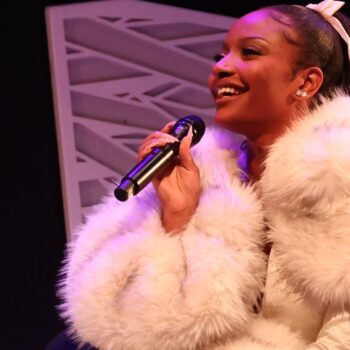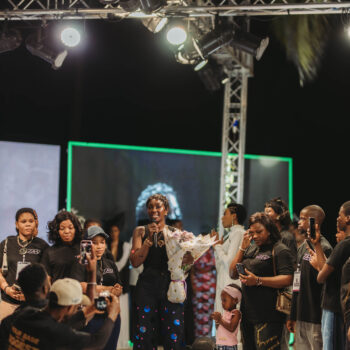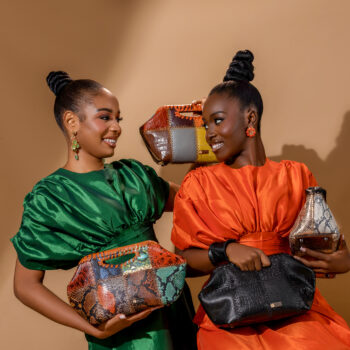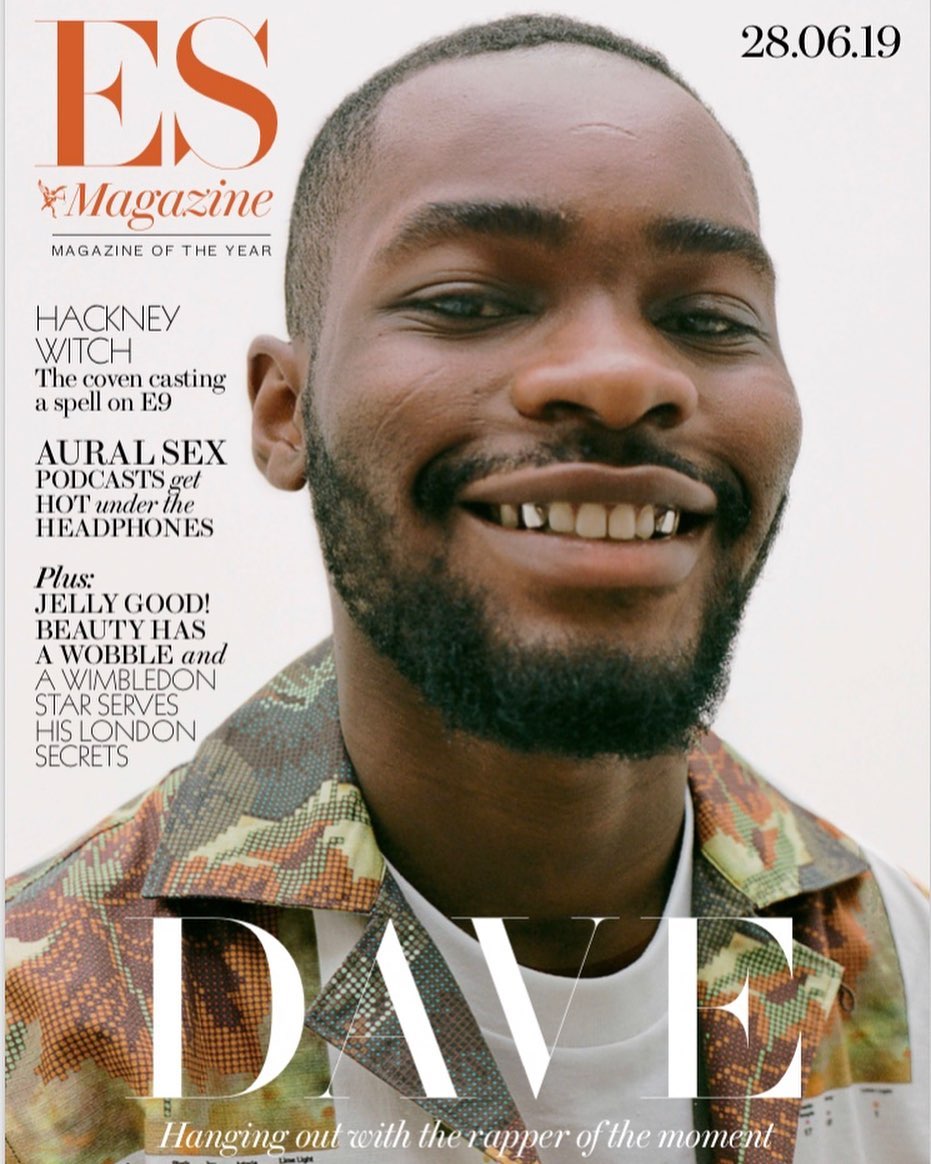
Before his highly anticipated Glastonbury debut, David Orobosa Omoregie aka SantanDave covers Evening Standard Magazine’s June 28 issue . On the cover, he is pictured in a white Acne Studios tee shirt and Carhartt WIP top, showcasing his signature smile.
Inside the magazine, the Psychodrama rapper talks about how his album is ‘.. meant to be innovative, risky, divisive in how it’s heard. ‘ He also outlines his childhood and how his successful debut has changed things.
He also discusses why he wanted to be a part of the Drake executive produced reboot of Top Boy, despite having no acting experience.
On the Evening Standard Instagram they shared:
Rising meteorically out of South London, Dave is the biggest rapper of the moment – and he’s this week’s cover star. After the No1 success of his debut album, Dave (@santandave) is showing no signs of slowing down: he speaks to Samuel Fishwick about what it’s like to be young and black in London, his music and his upcoming Netflix acting debut. Elsewhere, we join the coven congregating in E9, as the witches of Hackney Wick reveal their mystical powers, whilst beauty is taken back to basics. Plus, temperatures are rising on the podcast scene with some aural sex, and Jamie Murray serves up this week’s My London. Enjoy!
Scroll to see a few more excerpts from the magazine.
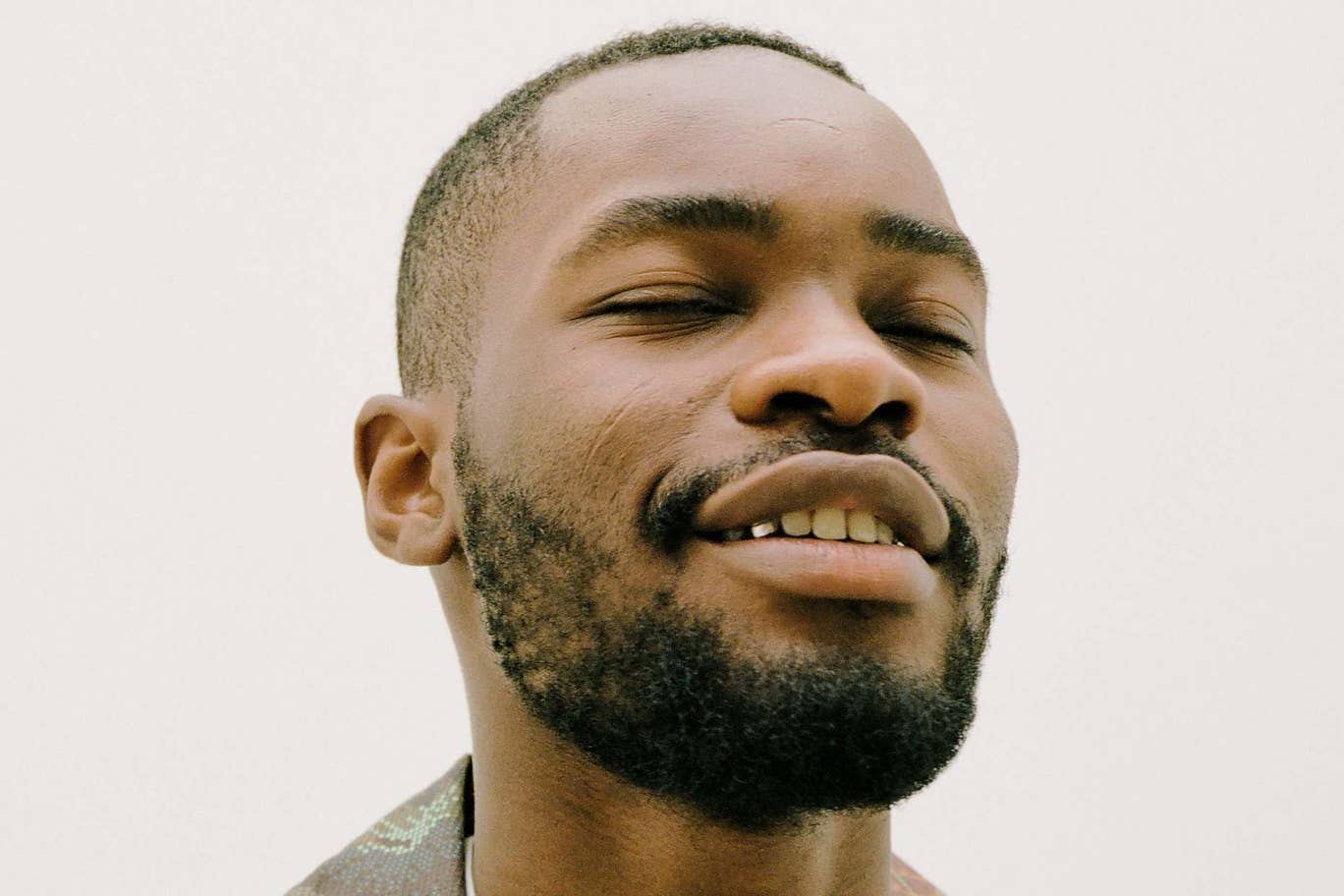
On what’s changed most
‘I’ve given her bragging rights. That’s something my mum’s definitely big on, like any African parent. Like any parent.’
On criticism and black culture
‘I couldn’t care less about criticism,’ he says. ‘With all due respect, it’s not about me telling you, “Yo brother, this is what it’s like to be black, listen to the story.” It’s for someone that has grown up and been told that this is what it means to be black. The black British experience, the black American experience, the black French experience, the black African experience, the Jamaican, the Somalian — it’s too many different layers to have one song that can universally describe them for everyone. What’s dangerous is this notion I’ve been seeing, to be giving unnecessary air time to people trying to divide between black. I see people competing, not only about, is an experience black or is it white, but about what is more black, what is less black, what is a truer black than this black, who has more right to black history, black culture.’
On finding solutions to violence
‘I’ve started to focus my attention on things that I want to change,’ he says. ‘I want to help people struggling with whatever it is they’re going through.’
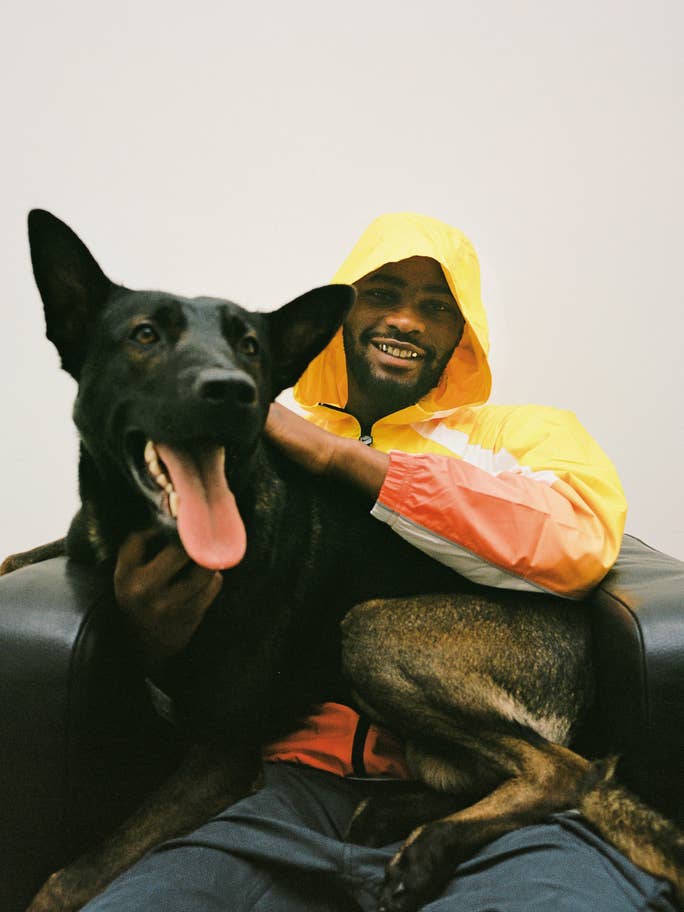
Credits
Photographer: @anthonyseklaoui
Stylist: @jessicaskeetecross
Words: @fishowick
Read the full interview here

